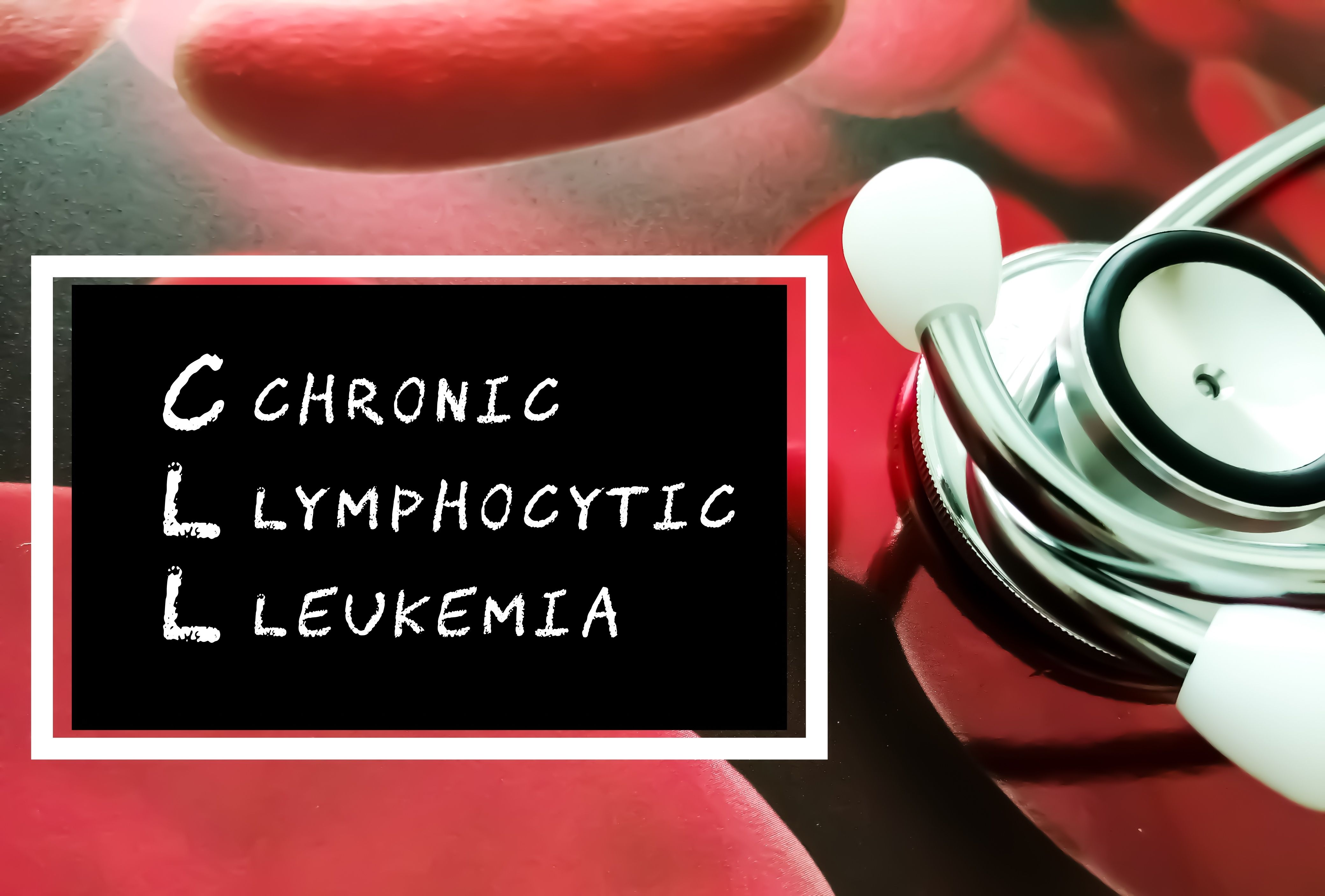- Center on Health Equity & Access
- Clinical
- Health Care Cost
- Health Care Delivery
- Insurance
- Policy
- Technology
- Value-Based Care
Novel Targeted Therapies Show Superiority in Relapsed/Refractory CLL
A meta-analysis demonstrated the superiority of Bruton tyrosine kinase inhibitors (BKTi) in the overall survival of patients with chronic lymphocytic leukemia compared with other therapies.
Novel therapies demonstrated superior efficacy compared with immunotherapy and chemoimmunotherapy in patients with chronic lymphocytic leukemia (CLL) , according to a first-of-its-kind meta-analysis published in Therapeutic Advances in Medical Oncology.1
CLL on chalkboard | image credit: Saiful52 - stock.adobe.com

CLL is the most common chronic leukemia in adults. It is characterized by the accumulation of mature clonal CD5-expressing B cells.2 Bruton tyrosine kinase(BTK) plays an important role in CLL and is essential for multiple survival pathways. The introduction of BTK inhibitors (BTKi) has led to better response rates in patients.3 The phosphoinositide 3-kinase (PI3K)/Akt signaling pathway is another pathway that plays a major role in various types of cancer, including CLL. It controls cell survival, metastasis, and metabolism, and influences the tumor environment.4
15 randomized trials were analyzed using Bayesian analysis for progression-free survival, overall survival, overall response rates and serious adverse events. Most of these trials were phase II and III trials, with 3 of them being double-blinded and 1 of them a single-center trial.1
The trials included 5 groups of interventions: BTKi, PI3K inhibitors (PI3Ki), BCL2 antagonists, anti-CD20 monoclonal antibodies, and other therapies. BTKi (acalabrutinib, zanubrutinib, ibrutinib) and PI3Ki (duvelisib, idelalisib) therapies were primarily used as a monotherapy or in combination with anti-CD20 monoclonal antibodies (ofatumumab, rituximab) and bendamustine. Patient outcomes were compared with those from immunotherapy (ofatumumab and rituximab) and chemotherapy (bendamustine and rituximab).
Monotherapy with BTKi showed superiority over chemotherapy, immunotherapy, duvelisib and combinations of idelalisib and anti-CD20 antibodies. The BTKi zanubrutinib demonstrated superiority over ibrutinib, as well as a combination therapy of idelalisib, bendamustine and rituximab.
An overall survival comparison showed that monotherapies with BTKi and combination therapy with venetoclax and rituximab significantly improved overall survival when compared with rituximab, ofatumumab or any other physicians’ treatment of choice. Both acalabrutinib and zanubrutinib were superior to duvelisib when compared for overall survival.
Similar to the overall survival comparison, patients treated with BTKi had a better overall response rate than those receiving PI3Ki or immunotherapy. However, the overall response rate was significantly lower in patients treated with ibrutinib compared with zanubrutinib or a combination therapy of ibrutinib and ublituximab.
Checking for adverse events is an integral part of developing therapies. A combination of bendamustine and rituximab had the lowest probability of toxicity with a low Serious Adverse Effects (SAE) rate. Zanubrutinib and a combination of venetoclax and rituximab also had similar SAE rates. A combination of venetoclax and rituximab was also acceptable, the researchers noted, considering that it is less toxic than PI3Ki and ibrutinib. The high toxicity of ibrutinib has led to patients discontinuing the medication. Common reasons for discontinuation are bleeding, atrial fibrillation and arthralgias.3 Duvelisib had the highest probability of toxicity.
The researchers also calculated an overall benefit score and found that ublituximab combined with rituximab, zanubrutinib, and venetoclax combined with rituximab had the highest probability of benefitting progression-free and overall survival rates. A combination of venetoclax and rituximab demonstrated a superior benefit-risk balance for safety and efficacy.
However, therapies based on PI3Kis notably performed worse than BTKis and venetoclax. The researchers noted that this may be due to the poorer efficacy of PI3Ki or because the patients in these studies were older and were previously treated with more medications than patients treated with BTKi.
Of the limitations listed by the researchers, the use of indirect comparisons and lack of significant heterogeneity were noted. Despite these limitations, the researchers highlighted several strengths of the study, such as their extensive literature search that yielded more trials.
References
- Monica M, Reczek M, Kawalec P. Network meta-analysis of novel targeted therapies for relapsed/refractory chronic lymphocytic leukemia. Ther Adv Med Oncol. 2024;16. doi:https://doi.org/10.1177/17588359241263710
- Kikushige Y. Pathogenesis of chronic lymphocytic leukemia and the development of novel therapeutic strategies. J Clin Exp Hematop. 2020;60(4):146-158. doi:https://doi.org/10.3960/jslrt.20036
- Woyach JA, Blachly JS, Rogers KA, et al. Acalabrutinib plus obinutuzumab in treatment-naïve and relapsed/refractory chronic lymphocytic leukemia. Cancer Discov. 2020;10(3):394-405. doi:https://doi.org/10.1158/2159-8290.cd-19-1130
- He Y, Sun MM, Zhang GG, et al. Targeting PI3K/Akt signal transduction for cancer therapy. Signal Transduct Target Ther. 2021;6(1):1-17. doi:https://doi.org/10.1038/s41392-021-00828-5
